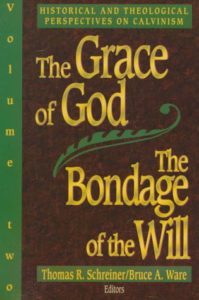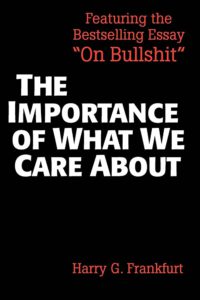 A. Definitions
A. Definitions
1) Determinism: Determination is, intuitively, the thesis that, given the past and the laws of nature, there is only one possible future. [Van Inwagen, Essay on Free Will (Oxford UP, 1983), p. 65] In theological terms, an event (such as choice or action), is determined, that is, it must occur because there are sufficient conditions for its occurrence obtained earlier by the decrees of God.
The two major contending positions in the debate on determinism and free will are:
Compatibilism is the idea that there is no conflict between determinism and free will.
Incompatibilism is the idea that determinism rules out free will.
2) The principle of alternative possibilities (PAP)
PAP: A person is morally responsible for what he has done only if he could have done otherwise.
PAP has been at the centre of current debates about free will and moral responsibility. Harry Frankfurt, an accomplished philosopher observes: “Practically no one, however, seems inclined to deny or even to question that the principle of alternate possibilities (construed in some way or other) is true. It has generally seemed so overwhelmingly plausible that some philosophers have even characterized it as an a priori truth. (p. 1).
B. PAP Argument Against Determinism (Predestination)
Critics against predestination (as a form of causal determinism) contend that (1) causal determinism rules out free will or our ability to do otherwise. Then, they conclude via (PAP) that (2) causal determinism is inconsistent with moral responsibility.
Argument Part 1
1. If someone has free will, then he is able to do otherwise.
2. If determinism is true, then he is no able to do otherwise.
3. Therefore, if determinism is true, he does not have free will.
Argument Part 2
P1 A person’s act is free and morally responsible if and only if that person could have done otherwise. (PAP).
P2 Predestination teaches that no one could have done otherwise than what he is predestined to do.
P3 Predestination is inconsistent with moral responsibility (given PAP).
C1: Predestination is not true.
The subtext of this argument is that predestination cannot be true since it undermines human moral responsibility by denying free will and makes God culpable for the sins of his creatures.
Continue reading “Reformed Compatibilist Freedom. Part 1. Critique of the Principle of Alternative Possibilities by Harry Frankfurt”
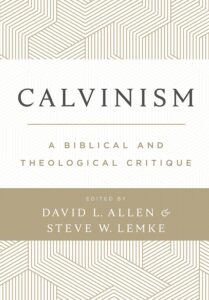
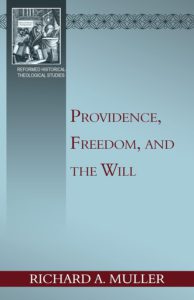 Some young Calvinists I know are not sure how to respond to their friends who reject the Calvinist doctrine of God’s foreknowledge and predestination with a self-assured declaration, “No thanks, Calvinist predestination is theologically and logically problematic. I prefer Luis de Molina’s teaching of the “scientia media or middle knowledge as it is more coherent and persuasive.” These young Calvinists become unsettled and feel intimidated by the unfamiliar terminology thrown at them. However, a simple question would dispel the Molinist’s aura of sophistication. “As a Molinist, are you then a Jesuit or an Arminian? Since you are Protestant, I conclude that you are basically rebranding old-time Arminianism by using exotic language, granted that the idea of a divine middle knowledge is at the heart and soul of the Arminian view.”
Some young Calvinists I know are not sure how to respond to their friends who reject the Calvinist doctrine of God’s foreknowledge and predestination with a self-assured declaration, “No thanks, Calvinist predestination is theologically and logically problematic. I prefer Luis de Molina’s teaching of the “scientia media or middle knowledge as it is more coherent and persuasive.” These young Calvinists become unsettled and feel intimidated by the unfamiliar terminology thrown at them. However, a simple question would dispel the Molinist’s aura of sophistication. “As a Molinist, are you then a Jesuit or an Arminian? Since you are Protestant, I conclude that you are basically rebranding old-time Arminianism by using exotic language, granted that the idea of a divine middle knowledge is at the heart and soul of the Arminian view.” The debate on free will has traditionally focused on how external constraints may prevent us from freely doing what we want to do. In contrast, modern psychology highlights how internal constraints (or drives) such as addictions, phobias and other kinds of compulsive behavior can be even more compelling in determining our actions. Frankfurt introduces several distinctions to our internal constraints or desires in order to shed light on they affect the way we exercise our free will.
The debate on free will has traditionally focused on how external constraints may prevent us from freely doing what we want to do. In contrast, modern psychology highlights how internal constraints (or drives) such as addictions, phobias and other kinds of compulsive behavior can be even more compelling in determining our actions. Frankfurt introduces several distinctions to our internal constraints or desires in order to shed light on they affect the way we exercise our free will.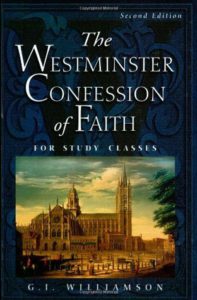
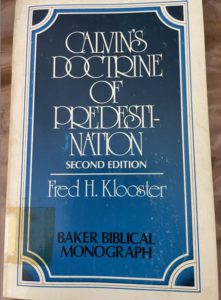 Calvin’s doctrine of predestination (election and reprobation) is not a product of philosophical deduction. It is a result of Calvin’s exegesis of Scripture. Calvin gives two concise definitions of predestination:
Calvin’s doctrine of predestination (election and reprobation) is not a product of philosophical deduction. It is a result of Calvin’s exegesis of Scripture. Calvin gives two concise definitions of predestination: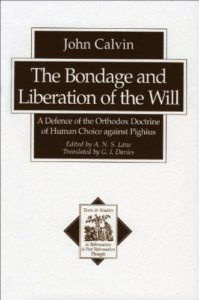
 In my earlier post,
In my earlier post, 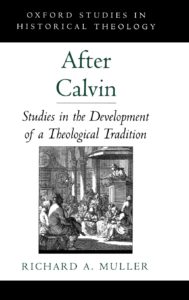 One of the problems with the “Calvin against Calvinists” scholarship is that it is based on questionable theological premises. This includes the claim that there is conflict between the predominantly scriptural and Christocentric theology of Calvin and the theology of later Calvinists or Reformed Scholasticism whose application of Aristotelian philosophy and speculative formulation of the will of God resulted in a doctrine of God which is rationalistic and predestinarian.
One of the problems with the “Calvin against Calvinists” scholarship is that it is based on questionable theological premises. This includes the claim that there is conflict between the predominantly scriptural and Christocentric theology of Calvin and the theology of later Calvinists or Reformed Scholasticism whose application of Aristotelian philosophy and speculative formulation of the will of God resulted in a doctrine of God which is rationalistic and predestinarian.